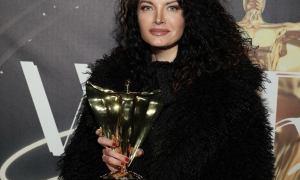
Joining the capacity crowds jamming into decidedly Chinese venues to hear some decidedly un-Chinese music: Puccini in the Forbidden City; Dido & Aeneas at the Beijing Concert Hall; Handl's Messiah at the Wang Fu Jing Church; Wagner's Tannhuser at the downtown Poly Theater. People who order their tickets in advance get in; the rest get introduced to another Western tradition scalpers, who buy in bulk and sell out fast. It's been that way every year since Long first launched the annual Beijing Music Festival (BMF) in 1998. And that, most people in the Chinese arts community believe, is nothing compared to the classical music explosion still to come.
“Fifty million Chinese children are now studying a classical instrument," says Long. “In 20 years, I believe China will be one of the biggest countries in the world for music."
The idea of China as the gravitational center of a globalized world is something most countries have gotten used to. But classical music hadn't seemed like it would be part of that mix, if only because Western opera and the Eastern world never made a natural fit. To outsiders, the traditional Peking opera seemed as much circus as song, with extraneous acrobatics and melodies that struck European ears as atonal and arhythmic. Western opera with its volume and bombast fell similarly flat in the East. But since Western ways were the planet's dominant ones, it was China that was open to learning from the outside. “If a poor country wanted to develop, it had to follow the West," says composer and conductor Guo Wenjing who performed at this year's BMF.
The artistic thaw didn't begin until the 1970s, as warming relations between the U.S. and China made cultural exchanges possible, including visits by the Philadelphia Symphony in 1973 and violinist Isaac Stern in 1979. That fired the musical interests of the Chinese at the same time the country's domestic policies were boosting music in other, unintended ways.
This year's BMF was a wholly global affair, with fourteen corporate sponsors that included such multinational giants as Audi, Credit Suisse, UBS and American Express. Performers came from across Europe and the Americas. Germany alone sent two complete opera companies a massive mobilization that involved 420 people and 16 trailer-sized shipping containers. The overall program was an eclectic one that included an evening-long tribute to Leonard Bernstein performed by the China Philharmonic, a globally competitive orchestra that pushed aside the government symphony in 2000 and that Long himself was tapped to lead. Just days after the 2008 festival ended, Long traveled to New York City, where the Bernstein performance was shown on eight giant screens in Times Square, just blocks from the spot where Bernstein's West Side Story had its Broadway premiere more than half a century earlier.
For more information contact All About Jazz.



























